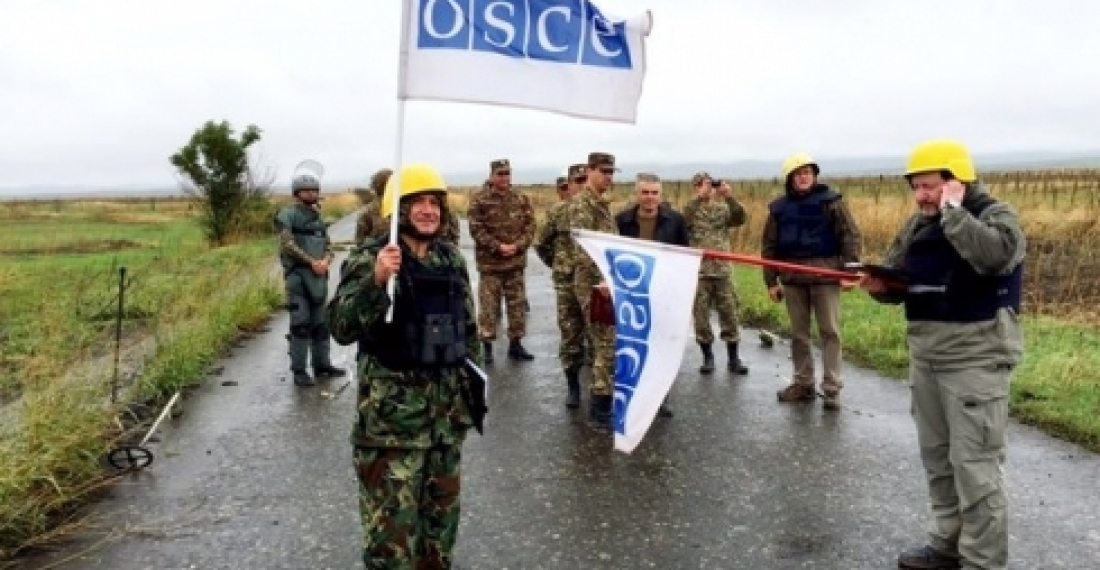The tense situation on the line of contact in the Nagorno-Karabakh conflict zone was starkely highlighted today when diplomats from France, Russia and the United States had to take cover due to heavy firing going on as they were conducting monitoring of the situation in the Terter Region. The three co-Chair of the OSCE Minsk Group are currently in the region to try to push forward negotiations on the settlement of the conflict.
There are conflicting reports as to what happened during the monitoring exercise. Both sides accuse each other of opening fire. First reports of the incidents came from the Azerbaijani side which accused Armenians of opening fire and forcing the co-Chair to take cover. Later the Defence Forces of the self-declared Nagorno-Karabakh Republic issued a counter-statement, denying that they had opened fire and accusing the Azerbaijani side of doing so. The US co-Chair of the Minsk Group, Ambassador Warlick confirmed that firing took place and tweeted "This is unacceptable". He however did not indicate which side had opened fire. At the time the diplomats were reported to be in the Terter region, on the Azerbaijani side of the line of contact.
The co-Chair of the OSCE Minsk Process, Ambassador Igor Popov of Russia, Pierre Andrieu of France and James Warlick of the United States on Monday (26 October) met Armenian President Serzh Sargsyan in Yerevan. On Tuesday they travelled to Stepanakert where they met the President of the self-declared Nagorno-Karabakh Republic, before travelling across the line of contact. They are expected to meet President Ilham Aliev of Azerbaijan in Baku tomorrow Wednesday (28 October).
source: commonspace.eu with agencies
photo: The co-Chair of the OSCE Minsk Process monitoring the line of contact in the Nagornoi-Karabakh conflict zone opn Tuesday, 27 October 2015. (picture courtesy of Ambassador James Warlick)







